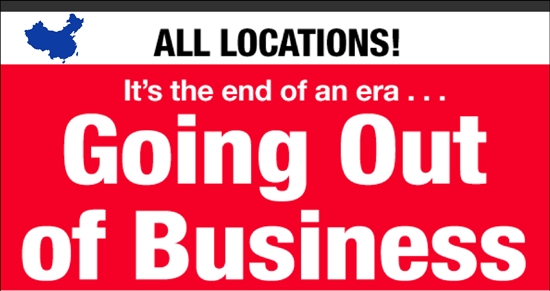
Li Qiang, the new premier of China, lackey of Dictator Xi Jinping, has abandoned or been instructed to abandon an annual tradition of briefing the media toward the end of China’s annual parliamentary meeting. He will not be conducting the annual press conference for at least the next few years.
The analysts wonder what this scrapping of “one of the most widely followed events on [China’s] economic and political calendar” might mean.
Inward, isolated?
Reuters says that the move is “seen by some observers as a sign of the country’s increasingly inward focus and centralised control.” According to its reporters (“China Ends 30-Year Tradition: Premier’s Annual Press Conference,” March 4, 2024):
Throughout the 1990s and 2000s, China had actively sought to elucidate its politics and policies in a bid to attract foreign investment and boost trade.
“China was heading towards an era of opening up. Now it is heading towards an era of isolation, as shown by the cancelled premier news conference,” said Chen Daoyin, a independent political commentator who formerly taught at Shanghai University of Political Science and Law.
[Lou Qinjian, National People’s Congress spokesman] said the premier’s news conference was cancelled because there would be more briefings on diplomacy, the economy and the livelihoods of the people by government ministers during the week-long parliament meeting.
Dictators always have to be tightening their dictatorial control, so this observation makes sense. But it is nothing new.
One goal of the last thirty years of Chinese propaganda may have been to encourage investment in China, but the primary goal has been to strengthen and extend China’s political power domestically and abroad.
According to Chen, being open to foreign investment means that China has been or had been until recently “heading toward” an era of opening up. “Opening up” how, exactly? In some broader sense than letting foreign companies set up shop within China and submit themselves to the control of the Chinese Communist Party? opening up to democracy and respect for the sovereignty of the individual? doing so in Xinjiang, Tibet, Hong Kong, and so on? Be specific.
Meanwhile, Lou Qinjian, spokesman for the National People’s Congress, pretending to explain something, says that Li Qiang is skipping his special annual briefing because a herd of lesser officials is available to talk to the press anyway. Lou is right that Li doesn’t need to spout the party line when plenty of others are available to spout it. But doesn’t a top guy in the Chinese Communist Party—if Li Qiang, putatively Number Two in China’s government, is a top guy—feel any need to publicly assert and show himself even once a year?
Loyalty
This sounds right:
Wen-Ti Sung, a political scientist at the Australian National University, said that scraping the premier’s news conference is Beijing’s effort to further control the narrative about the state of China.
This does not mean that President Xi Jinping distrusts Li Qiang, the current premier, Sung said.
“This is consistent with their relations with Xi playing policy architect and Li playing Xi’s faithful policy implementer.”
“Willingly stepping away from the limelight is an act of loyalty,” Sung said.
This loyal-lackey explanation—just Xi lording it over an acquiescent Li, trying to retain an iron grip on the narrative, per usual—makes more sense than Business Insider’s explanation and headline, which seems to suggest that China is on the verge of declaring bankruptcy and closing down (“China just pulled the country version of a company canceling its quarterly earnings call,” Huileng Tan, March 7, 2024).
It’s not a good look amid China’s economic troubles.
Rick Waters, the managing director for China at Eurasia Group, drew a corporate parallel for the move, saying, “canceling your quarterly earnings calls isn’t a formula to improve market perceptions.”
If cancelling the press conference isn’t a good look and isn’t calculated to reassure investors, why do it? Toward the end of the article, we’re back to the explanation that Xi is hugging power to his bosom:
But some analysts have said the cancellation is a sign that China’s leader, Xi Jinping, doesn’t want anyone questioning his regime.
“The decision suggests that Xi Jinping is further attempting to consolidate his political authority and, at a time of growing external concern over the state of China’s economy, shape the narrative that Beijing puts forward about its internal health,” Ali Wyne, a senior researcher at the International Crisis Group, told Business Insider’s Tom Porter on Tuesday.
Hmm. According to Ali Wyne, then, Xi is trying to consolidate his power and shape the narrative, not undermine his power and the narrative. So Xi Jinping is probably not going to hang a GOING OUT OF BUSINESS sign on China’s door anytime soon.





